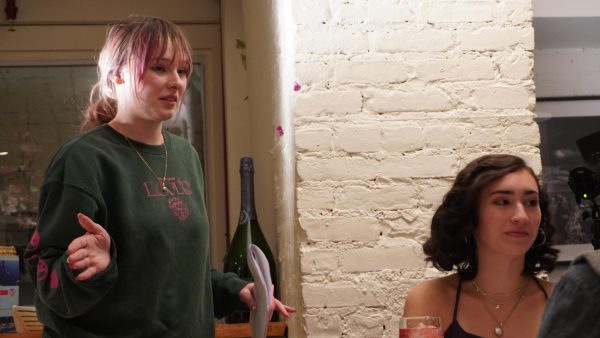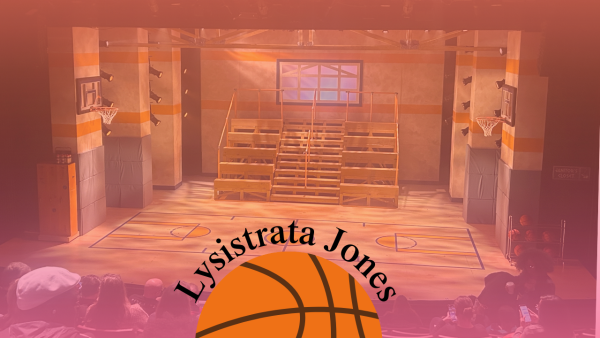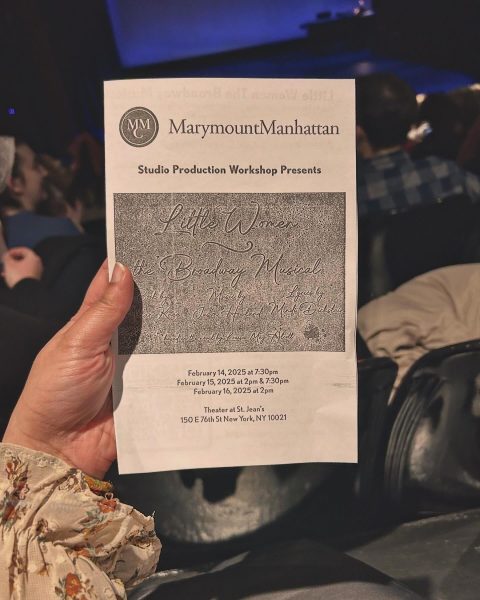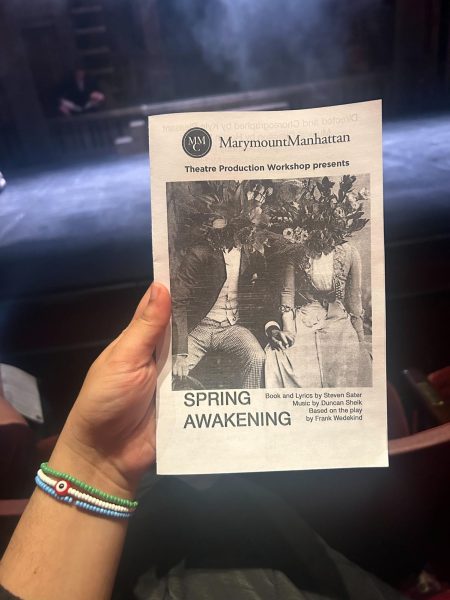MMC’s Theatre Department Introduces Intimacy Education
Reading Time: 3 minutesSince September 2019, The MMC Intimacy Education program has been implemented within the Theatre Department, spearheaded by Professor Emeritus in Theatre Arts and Coordinator for Movement of Actors, Haila Strauss; and Professor of Theatre Arts, Jill Stevenson. Intimacy training seeks to help the industry improve the work and training environment, not only when staging intimate scenes and sexually violent scenes, but in how we treat each other in rehearsal and on set. The training program was first introduced to MMC two years ago in March of 2019, when Professors Barbara Adrian and Haila Strauss attended a training program at the University of Baltimore with the support and blessing of then Theatre Department Chair, Prof. Mary Fleischer. After this initial program, MMC has supported the training program to start for theatre students. Despite the pandemic, the program has been full steam ahead. All aspects of theatre that students are studying includes these trainings, such as acting classes, stage management, directing, playwriting and costume design, et cetera. There are also faculty workshops that give theatre faculty, full time and adjunct, awareness of the implementations and guidelines that these trainings bring to the main stage, playwriting and directing projects. It might seem that although conducted on Zoom, people shouldn’t need intimacy, but the pandemic has highlighted how Zoom is creating an intimate setting and the different ways situations can be intimate. It encompasses language context and text history.
Tonia Sina, an actress and stage combat coordinator, is the founder of the organization Intimacy Directors and Coordinators. Sina initially put together principles of stage combat with stage intimacy. It’s a very comprehensive, detailed experience. Every intimate experience is carefully choreographed so every night you know what will happen to you on stage. It’s supposed to create a more comfortable and better sustained atmosphere for all parties involved in certain scenes. Every teacher comes from choreography, stage combat and movement for actors.
In the intimacy training department, there are two distinct titles: Intimacy Director and Intimacy Coordinator. An Intimacy Director works with stage intimacy on stage for actors, and an Intimacy Coordinator works with staging intimacy for TV and movies. Within on the stage and on the screen, men are often the stage combat coordinators/directors, and women are often the stage intimacy coordinators/directors.
The program at MMC is here for a real gender equity and equality element, being an important part of work in gender equity. All curriculum within the program will address the needs of students going into theatre. All needs are different in a professional environment. Everyone should be able to feel safe and comfortable. It has been questioned who needs to be in the room during the time of certain scenes, such as during a kiss scene or nude scene. Both kinds of scenes are choreographed very carefully, leading to a kiss scene to only have the two actors, intimacy director/coordinator and the stage manager in the room. The first couple rehearsals would consist of the actors being hand-to-hand, then cheek-to-cheek, eventually leading up to an actual kiss during tech week. Nude scenes are carefully choreographed as well, ending up with the stage being completely cleared, only leaving the two actors, stage manager and the intimacy coordinator in the room. Professor Stevenson remarked how “rehearsal is a time for playing, trying things out and making mistakes, so this sense of safety draws out more creativity.” The safety aspect allows actors to come to a place that they feel more comfortable and the rules allow for creativity. The actor will never have to blindly consent to something they won’t feel safe doing. This program is “a wide net cast throughout the theatre department making it so that everyone is speaking the same language.” remarked Professor Strauss. These intimacy trainings aren’t training students to enter the industry, but to prepare them to use their crafts however they want to and make change. The goal is to make MMC graduates able to be a part of the conversation in making this an industry standard and to become changemakers. A lot of changemakers are needed out there in the industry. The program is always being reevaluated because MMC strives to stay cutting edge and relevant.
When HBO mandated that every set was to have an intimacy coordinator, it was a groundbreaking event. Theatrical unions like now intimacy direction standards thanks to mainstream usage of these directors. Famously, the Broadway show “Frankie & Johnny” was the first Broadway show to include intimacy direction with an intimacy coordinator, but certainly not the last. The industry still has a long way to go, but it’s going in the right direction.

My name is Gabrielle Fiorella. I am a senior double majoring in Digital Journalism and Cinema, Television and Emerging Media with a minor in International...











